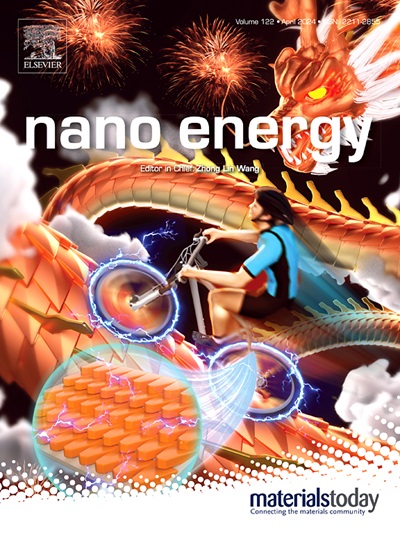Robotic taste sensing via triboelectric and deep learning
IF 16.8
1区 材料科学
Q1 CHEMISTRY, PHYSICAL
引用次数: 0
Abstract
The ability to endow robots with a sense of taste is a long-standing challenge in the field of robotics and sensory technology. Traditional chemical measurement devices for liquid identification are often bulky, slow, and costly, limiting their integration into mobile robots. To address this, we propose a novel Liquid Identification Taste System (LITS) that utilizes the triboelectric effect combined with deep learning for precise and efficient liquid identification. By exploiting the unique triboelectric signals generated at the solid-liquid interface, LITS accurately identifies a wide range of liquids based on their physical and chemical properties. Leveraging the Long Short-Term Memory (LSTM) algorithm, the system achieves a high classification accuracy of 96 % for six common liquids. Additionally, the system demonstrates the potential to distinguish inedible liquids, such as HCl and NaOH, further highlighting its versatile application. This integration of triboelectric sensing with deep learning not only enhances the sensor’s resolution and sensitivity but also provides a scalable, cost-effective solution for real-time liquid identification, making it a promising step toward enabling robots to acquire a sense of taste.

基于摩擦电和深度学习的机器人味觉感知
赋予机器人味觉的能力是机器人技术和感官技术领域的一个长期挑战。用于液体识别的传统化学测量设备通常体积大、速度慢、成本高,限制了它们与移动机器人的集成。为了解决这个问题,我们提出了一种新的液体识别味觉系统(LITS),该系统利用摩擦电效应结合深度学习进行精确有效的液体识别。通过利用固液界面产生的独特摩擦电信号,LITS可以根据其物理和化学性质准确识别各种液体。利用长短期记忆(LSTM)算法,该系统对六种常见液体的分类准确率达到96%。此外,该系统还显示了区分盐酸和氢氧化钠等不可食用液体的潜力,进一步突出了其广泛的应用。这种摩擦电传感与深度学习的结合不仅提高了传感器的分辨率和灵敏度,而且为实时液体识别提供了可扩展的、经济高效的解决方案,使其成为使机器人获得味觉的有希望的一步。
本文章由计算机程序翻译,如有差异,请以英文原文为准。
求助全文
约1分钟内获得全文
求助全文
来源期刊

Nano Energy
CHEMISTRY, PHYSICAL-NANOSCIENCE & NANOTECHNOLOGY
CiteScore
30.30
自引率
7.40%
发文量
1207
审稿时长
23 days
期刊介绍:
Nano Energy is a multidisciplinary, rapid-publication forum of original peer-reviewed contributions on the science and engineering of nanomaterials and nanodevices used in all forms of energy harvesting, conversion, storage, utilization and policy. Through its mixture of articles, reviews, communications, research news, and information on key developments, Nano Energy provides a comprehensive coverage of this exciting and dynamic field which joins nanoscience and nanotechnology with energy science. The journal is relevant to all those who are interested in nanomaterials solutions to the energy problem.
Nano Energy publishes original experimental and theoretical research on all aspects of energy-related research which utilizes nanomaterials and nanotechnology. Manuscripts of four types are considered: review articles which inform readers of the latest research and advances in energy science; rapid communications which feature exciting research breakthroughs in the field; full-length articles which report comprehensive research developments; and news and opinions which comment on topical issues or express views on the developments in related fields.
 求助内容:
求助内容: 应助结果提醒方式:
应助结果提醒方式:


